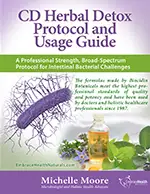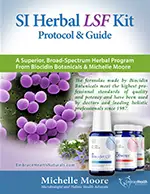


Start Your Healing Journey
Shop All Biocidin Botanicals Products!
Health Disclaimer
These statements have not been evaluated by the Food and Drug Administration. The information on this website is not intended as medical advice or to diagnose, treat, cure, or prevent any health condition or disease. Any products mentioned are not intended to diagnose, treat, cure or prevent any disease. The information and products on this website and any affiliated websites are provided for educational purposes only to augment consultation with a qualified doctor or healthcare professional. Our products and information are are not intended to replace a physician-patient relationship and should not be used as a substitute for professional medical treatment or diagnosis. Be sure to consult with a healthcare professional before using any of the information or products on this website. See our full terms of use for details.
